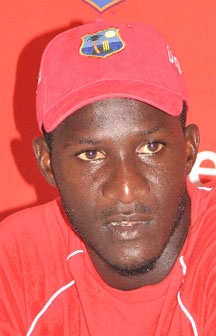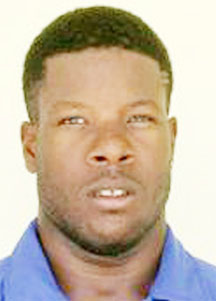By Cosmo Hamilton
It is the year 2012. It is a leap year. It is a year when the WICB should take a leap of faith as they ‘drive for five’ – a quest for a position among the top five in the ICC rankings among the world’s best cricket nations. West Indies cricket in its long and storied history is still sustained by the legacy of the greats of post war vintage like Weekes, Worrell and Walcott, and the teams of the 50’s and 60’s of Sobers, Kanhai, and Gibbs and Hall and Griffith, and those immortalized in the recent DVD – ‘Fire in Babylon’ – the likes of Lloyd, Richards, Greenidge, and Haynes, and Holding and Roberts.
But these are not the good old days when West Indies not only ruled the roost but dominated the international cricket world and turned the game on its head, where cricket for a considerable period was no longer ‘a game of glorious uncertainties’, but became for the proud people of the region, one where the outcome was almost a foregone conclusion.

The Windies have long since lost that magic and are hard pressed to regain that bravado which pervaded the cricket field, transfused the Board room, and infused the entire Caribbean with charisma and confidence. Nowadays victories for the regional team are few and far between and consistency is a mirage. But like Spring, the future is green and full of promise. There is rich young talent coming through the Sagicor High Performance Center in Barbados and the territories.
On the West Indies recent tour of Bangladesh and India, 18 year old Kraigg Braithwaite, 21 year old Kieron Powell, 21 year old Adrian Barath, 22 year old Darren Bravo, and 23 year old Andre Russell all appear capable of performing well at the highest level. What is sorely needed is a young player with leadership qualities and a skill set that would warrant his place in the team, to be captain. The Darren Sammy experiment has been unsuccessful mainly because his personal performance has been sub par and does not justify a place on the team. Though as captain he has tended to be inspiring, his contribution particularly as a batsman has been woefully inadequate.

And so with Australia here for the five ODI’s, two T 20’s, and three Tests, the WICB lost an opportunity to make a vital change by taking a bold decision to name a new captain. Right handed batsman 27 year old Kirk Edwards who seemed to have cemented his position recently as a number three batsman with two Test centuries should have been named to fill the role. It is a decision that should have been taken even before he was named skipper of the Barbados team and well ahead of this Australia visit. Such perspicacious action would immediately pave the way for talented all-rounder Andre Russell to assume a more secure position on the team and would allow for more flexibility in the line-up.
The idea of an inexperienced player with no body of work as a leader being entrusted with the captaincy may be infrequent but not far-fetched. Case in point – South Africa captain Graeme Smith was named captain of his national team at the tender age of 22, just one year after his test debut, and as they say the rest is history. As skipper and opening batsman Smith immediately became more focused and pointedly prolific, scoring double centuries in his third and fourth test matches as captain against England. As a young captain he grew rapidly in stature and led his team with conviction. My hunch is that Edwards just might be the one for the job.





